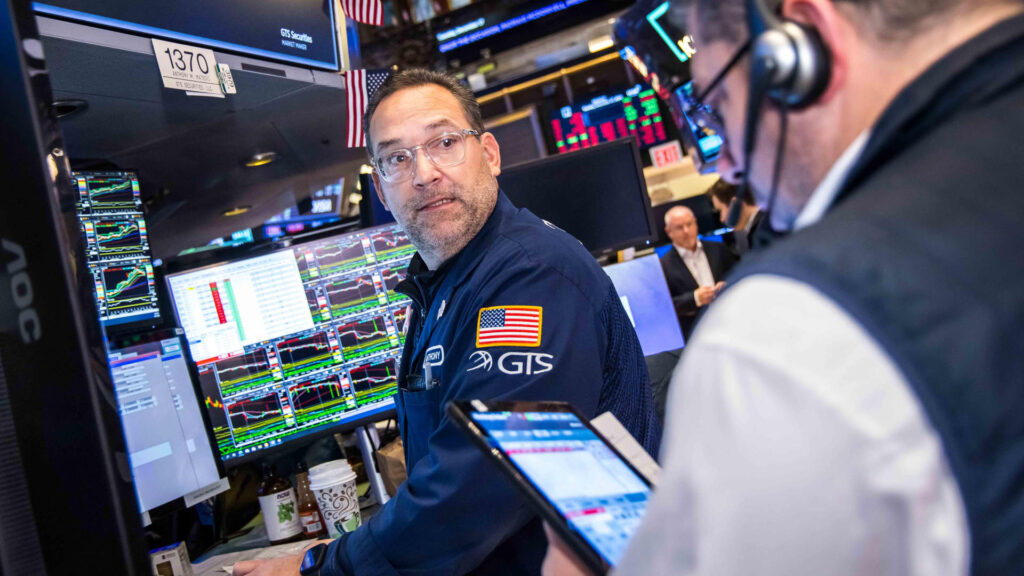[ad_1]
This report is from today’s CNBC Daily Open, our international markets newsletter. CNBC Daily Open brings investors up to speed on everything they need to know, no matter where they are. Like what you see? You can subscribe here.
What you need to know today
Automakers, combine
Nissan Motor shares popped 23.7% on Wednesday after a Tuesday report that the Japanese automaker is considering a merger with Honda Motor. Both companies are also planning to bring Mitsubishi Motors â in which Nissan owns 24%, making it the top shareholder â under the holding company eventually. Nissan’s been struggling of late: its second-quarter operating profit plunged 85%.
Dow drops for the ninth day
On Tuesday, the Dow Jones Industrial Average lost 0.61%, marking a nine-day losing streak. The S&P 500 slipped 0.39% and Nasdaq Composite retreated 0.32%. Asia-Pacific markets traded mixed on Wednesday. Japan’s Nikkei 225 lost around 0.4% as investors assessed the country’s wider-than-expected trade deficit in November, and await the Bank of Japan’s interest rate decision this week.
New enthusiasm for new listings in Hong Kong
After three consecutive years of decline, this year’s new listings on the Hong Kong stock exchange rose in terms of deal values, according to data from Dealogic. The 63 deals this year raised $10.65 billion, more than 80% higher than the combined value in 2023. It’s a sign that Chinese lawmakers’ pledged support for the Hong Kong market is taking effect.      Â
What to expect from Fed
The U.S. Federal Reserve concludes its two-day rate-setting meeting later this Wednesday. Despite sticky inflation and a resilient labor market, the Fed is widely expected to lower rates by 25 basis points. But a CNBC survey of 27 respondents, comprising economists, strategists and fund managers, showed that only 63% think it’s the right move for the Fed.
[PRO] When to take profit
Nvidia shares may have fallen 1.2% yesterday, plunging it deeper into correction territory, but the chipmaker is still up a 163.3% year to date. That suggests some investors may have been taking profit from Nvidia’s breathtaking rally. Using charts, CNBC Pro analyzes when it’s optimal for investors to sell their best-performing stocks.
The bottom line
In February 1978, the Bee Gees’ song “Stayin’ Alive” was the top Billboard song of the month. It was also the anthem for the Dow Jones Industrial Average, which was struggling with nine straight days of losses.
Almost fifty years ahead, the Dow is mired in nine-day losing streak again. To take another cue from the Billboards chart, all investors want for Christmas is the Dow to stop bleeding red.
That said, it’s not a major wound for the 30-stock index, despite the scary numbers.
The heaviest drag on the Dow is UnitedHealth, which has contributed to more than half of the index’s decline over the past eight sessions, noted CNBC’s Yun Li. The health insurance company was rocked by a fatal shooting of its CEO Brian Thompson as well as a broader sell-off in the industry.
Outside the Dow, the stock market is still cheery. Despite the S&P and the Nasdaq also slipping in their last trading session, both indexes are hovering near their record closes. This suggests that it’s mostly the Dow constituents â “old-economy” stocks like industrials, financials and consumer discretionary â that are flailing.
“Wall Street is waking up to the fact that a Trump presidency might not be as great for stocks as some people hoped,” said David Russell, global head of market strategy at TradeStation. “Financials and industrials jumped on his win but now may have to face higher rates and trade uncertainties, and healthcare faces its greatest political risks in recent memory.”
Moreover, the losses for the Dow might be consecutive, but the incline isn’t that steep. The index is just 3.6% off its record high, and its 50-day moving average is still trending upward.
It’s not that the stock market is giving investors money for nothing. But we aren’t quite in dire straits yet.
â CNBC’s Yun Li, Michelle Fox, Fred Imbert, Alex Harring, Adrian van Hauwermeiren, Brian Evans and Samantha Subin contributed to this report.       Â
[ad_2]
Source link

